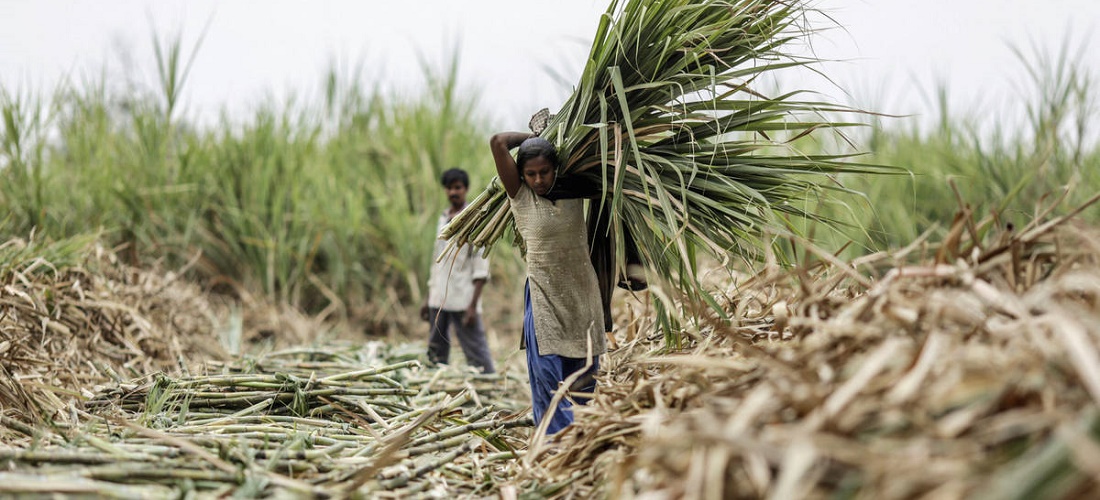
Sugar dispute with India tends to linger at WTO
Dec, 27, 2021 Posted by Gabriel MalheirosWeek 202150
The sugar dispute between Brazil, Australia and Guatemala against India at the World Trade Organization (WTO) will continue into 2022, while, parallelly, European producers increase their resistance to the entry of imported sugar into their markets.
Earlier this month, the WTO condemned New Delhi for letting illegal subsidies go unpunished thanks to a lawsuit filed by Brazil, Australia and Guatemala. A panel (investigation committee) concluded that the Indian government massively increased the subsidy to the sugar sector and reintroduced a minimum price that caused production to exceed domestic demand.
WTO’s Dispute Settlement must formally adopt, in the first weeks of 2022, the decision of the judges. Thereafter, India will have 120 days to withdraw prohibited subsidies involving sugar production, marketing and transportation.
India contests the resolution
The Indian Ministry of Commerce and Industry has challenged the decision, which was called “completely unacceptable” by the governmental body that even indicated an intention to appeal However, while the Appellate Body of the WTO is not operational, the litigation will continue without a final solution.
Regardless, India considers that the WTO has no impact on its current aid policies for the sugar industry. The government has already curbed export subsidies through a support program for up to 6 million tonnes for the fiscal year of 2021/22 (which starts in October 2021 and finishes in September 2022).
Indian exports reached 7.2 million tonnes in 2020/21, of which 1.2 million were sold without subsidies.
According to an analysis conducted by the US Department of Agriculture (USDA), even without subsidies, India could export more than 6 million tons by September 2022. Thanks to its exportable surplus, lower sugar production in Brazil, and steady global prices, India has already signed sales contracts worth 3.55 million tons in the current season.
Europeans show discontentment
The European Association of Sugar Manufacturers (CEFS) has also been condemning incessantly “heavy Indian subsidies, which generates catastrophic effects on the international price” of sugar. And it has now asked the European Commission to take “due measures” to ensure that no more sugar from India enters the European market until practices deemed illegal by the WTO are cease to exist.
On top of that, CEFS has opened a new battlefront involving the European Union’s free trade agreement with six Central American countries — Costa Rica, Honduras, Guatemala, Nicaragua, Panama and El Salvador. Brussels has launched a public consultation to assess this agreement.
CEFS’s concern is that the treaty, in force provisionally since 2013, granted a tariff-free quota for the entry of 166,860 tons of sugar per year from these six countries.
An additional concession made by the EU expands the quota by almost 5,000 tonnes per year. Therefore, the six countries can now export 200,880 tons free of tariffs to the 27 countries of the European bloc. CEFS opposes “this never-ending concession”.
The organization claims that the European sugar market has suffered four years with persistently low prices and that the covid-19 pandemic caused a major drop in consumption. In addition, Brexit also substantially reduced the bloc’s need for sugar imports.
Considering all this, in addition to the EU expanding its agreement in place with Mexico and the possibility of a new free trade agreement with Mercosur, the CEFS insists that Europe cannot make new concessions to foreign producers, large or small.
Source: Valor Econômico
To read the full original article visit the link: https://valor.globo.com/agronegocios/noticia/2021/12/27/disputa-do-acar-com-a-ndia-tende-a-se-prolongar-na-omc.ghtml
-
Ports and Terminals
Jan, 18, 2021
0
Port of Paranaguá registers 6% increase in container handling
-
Ports and Terminals
Jan, 17, 2024
0
Forklift plunges into Port of Santana waters; one worker missing
-
Shipping
Apr, 24, 2020
0
HMM presents the largest container vessel in the world
-
Ports and Terminals
Apr, 14, 2022
0
Waiting time increases to 60 days as more imported fertilizers arrive at Paraná ports


